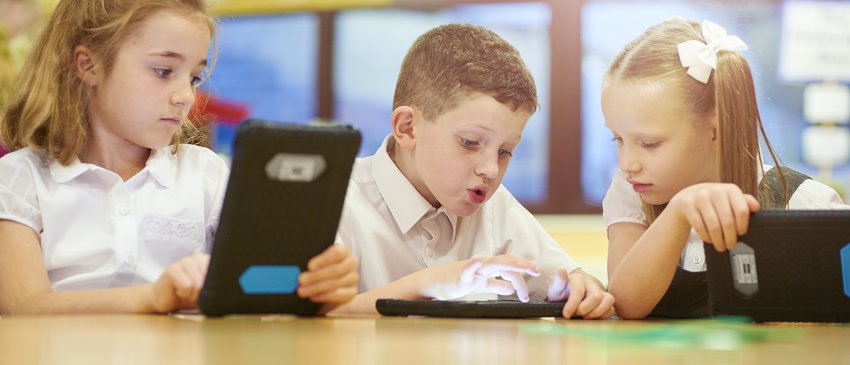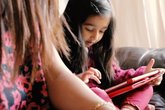Digital literacy and technology

We live in a digital age. The influx of new technologies and digital platforms is transforming the way that children and young people access reading material, with digital reading becoming an increasingly important part of children’s literacy lives. As the digital-first world continues to evolve, we also need to consider what is the future of literacy and how do we adapt?
Digital technology and its use as a tool for reading, writing and listening activities can also be a polarising topic. Concerns about screen time and the negative effects of technology on mental health and education dominate media headlines. Media literacy and the increasingly urgent discussion about how to equip children with the critical literacy skills to navigate the digital space is of paramount importance within government, the education sector and for families.
Through our research, we're exploring digital technology and its impact on literacy. We've been looking into topics like how many children read digitally compared to in print, the technology teachers are using in the classroom and their digital literacy skills, and digital technology in the early years. Most recently, we have delved into the conversation around to what extent we should engage with generative AI and exploring its impact on literacy.
Our digital research
-
These reports share findings on children, young people and teachers' use of, and attitudes to, generative AI and literacy in 2024Learn more about Children, young people and teachers’ use of generative AI to support literacy in 2024.
-
Using data from our 2019 Annual Literacy Survey of 56,905 children and young people aged 9 to 18 in the UK, this report suggests that offering children and young people the...Learn more about Children, young people and digital reading.
-
This report presents findings from a survey exploring young people’s literacy and critical literacy attitudes and behaviours when navigating online environments.Learn more about Insights into young people’s literacy, critical digital literacy, online communication and wellbeing.
Our digital work
-
A free platform for primary schools, offering pupils access to free books and activities from the most popular children's authors.Learn more
-
LiteracyApps is our guide for parents to help young children get the most out of apps.Learn more
-
We help pupils navigate the often-confusing world of digital news.Learn more
Useful digital resources
-
Technology can play a useful role in supporting early communication, language and literacy.Learn more
-
Resources, posters and tips to teach children about fake news, and give them the critical literacy skills they need to navigate our digital world.Learn more
-
Use these videos and lessons plans to bring a professional poet into your classroom for a whole week.Learn more






